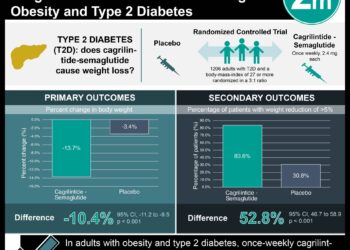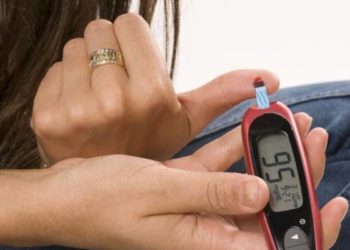Artificial pancreas lowers the risk of overnight hypoglycemia in children
[tabs tab1=”2MM Rundown” tab2= “2MM Full Report”]
[tab]
Image: PD
1. Overnight hypoglycemia was less likely with an artificial pancreas compared to a sensor-augmented insulin pump in children with type 1 diabetes.
2. There was significantly less variation in overnight glycemic levels using the artificial pancreas.
This multi-national crossover study measured the efficacy of an artificial pancreas compared to a sensor-augmented insulin pump in children with type 1 diabetes at a camp. The authors of the study found that artificial pancreas use was associated with a lower risk of hypoglycemia.
Some strengths of the study are its size and generalizability given that it was conducted in three different countries. There are, however, several limitations to this study. First, subjects used the artificial pancreas for only one night. Clinically, these devices should be worn at all times during the day. Calibration of the artificial pancreas and the control group was performed every three hours. Clinically, these devices would only be calibrated three times a day. Future research should try to replicate the use of these devices in real clinical situations.
Click to read the study in NEJM
[/tab]
[tab]
Image: PD
1. Overnight hypoglycemia was less likely with an artificial pancreas compared to a sensor-augmented insulin pump in children with type 1 diabetes.
2. There was significantly less variation in overnight glycemic levels using the artificial pancreas.
This [prospective crossover] study compared the efficacy of an artificial pancreas device (close looped continuous glucose sensory and insulin pump) to a sensor-augmented insulin pump in 54 children with Type 1 diabetes at a two day sleep-away camp in three different countries. Subjects were randomized into either the artificial pancreas group the first night, and then the sensor-augmented insulin pump the next, or vice versa. Primary endpoints were the number of hypoglycemic events, duration of hypoglycemia and mean overnight glucose levels. The devices were worn from 5 pm to 7 am.
There was a significant decrease in the number of hypoglycemic events, as well as the time in hypoglycemia on the nights of the artificial pancreas compared to control. Furthermore, there was significantly less variation in glucose levels overnight while using the artificial pancreas compared to the control. However, there was no difference in mean overnight glucose levels.
In sum: This multi-national crossover study measured the efficacy of an artificial pancreas compared to a sensor-augmented insulin pump in children with type 1 diabetes at a camp. The authors of the study found that artificial pancreas use was associated with a lower risk of hypoglycemia.
Some strengths of the study are its size and generalizability given that it was conducted in three different countries. There are, however, several limitations to this study. First, subjects used the artificial pancreas for only one night. Clinically, these devices should be worn at all times during the day. Calibration of the artificial pancreas and the control group was performed every three hours. Clinically, these devices would only be calibrated three times a day. Future research should try to replicate the use of these devices in real clinical situations.
Click to read the study in NEJM
By Jeremy Chan and Mitalee Patil
More from this author: Selumetinib increases the uptake of radioiodine in patients with metastatic thyroid cancer refractory to radioiodine, A fractional two-dose regimen of the polio vaccine presents a low-cost alternative to the current schedule
© 2013 2minutemedicine.com. All rights reserved. No works may be reproduced without written consent from 2minutemedicine.com. Disclaimer: We present factual information directly from peer reviewed medical journals. No post should be construed as medical advice and is not intended as such by the authors or by 2minutemedicine.com. PLEASE SEE A HEALTHCARE PROVIDER IN YOUR AREA IF YOU SEEK MEDICAL ADVICE OF ANY SORT. Content is produced in accordance with fair use copyrights solely and strictly for the purpose of teaching, news and criticism. No benefit, monetary or otherwise, is realized by any participants or the owner of this domain.
[/tab]
[/tabs]







